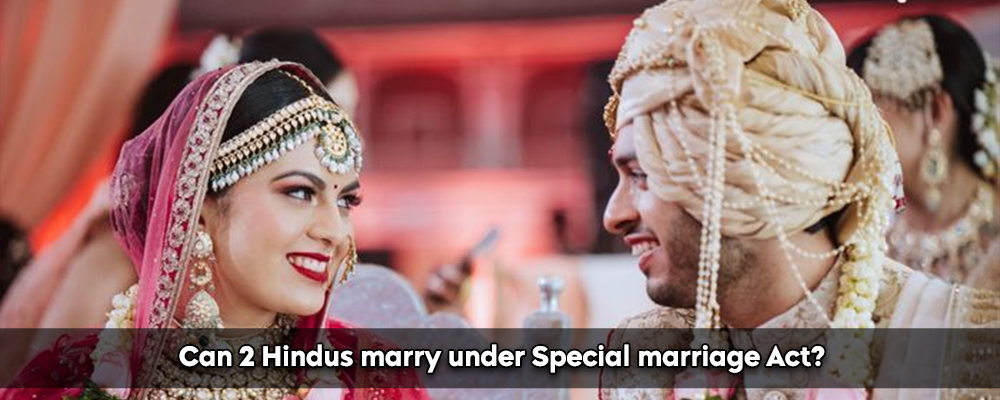While inter-caste marriages are strictly forbidden, weddings between people of the same social position or caste are becoming the norm in many parts of India. Contrarily, interfaith unions are taboo, and people who choose to marry someone who does not adhere to their religious practices and beliefs may face societal disapproval or even become social outcasts. This and other vigilante groups have made the couple’s problems so much worse that they are now forced to fight a drawn-out battle to ensure that their safety and lives are not in danger.
Religious laws in India have been unable to recognize and regulate marriages between interfaith or intercaste couples who do not wish to associate and solemnize their marriage according to any particular religious laws since the colonial era, since the Hindu Marriage Act of 1955, or the registration of marriages under Muslim personal laws. The British Government in India recognized that this obstacle prevented two consenting, eligible adults from getting married and passed the Special Marriage Act, of 1954, 1872, to uphold the society’s highly valued secularism. As a result, the current Special Marriage Act, 1954, of 1954 was drafted and put into effect in newly independent India by colonial statutory provisions. This was crucial to preserving the nation’s secular fabric after it had been severely ripped by the aftermath of the 1947 partition.
Need A Legal Advice
The internet is not a lawyer and neither are you. Talk to a real lawyer about your legal issue

A synopsis of the 1954 Special Marriage Act
Introduced into the Indian legal system in 1954, the Special Marriage Act, 1954 is regarded as one of the most important secular initiatives of independent India. The Act was designed to be a piece of legislation that governed marriages that were prohibited from being solemnized by religious customs. All Indian nationals, whether they reside in India or abroad, are covered by the Act. Although people who live in Jammu and Kashmir but have their primary residence in another state are eligible for these provisions, the State of Jammu and Kashmir is not covered by this Act.
It is a legal statute that creates a unique category of marriage through registration. One thing that makes marriage special is that it doesn’t need religious conversion or rejection. The Act aims to legalize marriages between people of different religions or castes, in contrast to traditional arranged marriages, which unite two families from the same caste or group. The Certificate of Registration issued under the Act is recognized as universal proof of marriage. As mentioned in the Preamble, the Act permits divorce as well as the registration of special-form marriages under certain conditions.
Sections of the 1954 Special Marriage Act
The Act fundamentally changed how society views weddings between members of other castes and religions in the following manner by utilizing the following components:
- This Act covers all Indian citizens, regardless of caste or religion, in contrast to the prior marriage laws. Therefore, under the aforementioned Act, anyone who wishes to marry another person may do so.
- There are no ceremonies or rituals performed since the Act views marriage as a legal transaction. The marriage is consummated legally, that is, through a court marriage.
Requirements
The assent of both parties to the marriage is a fundamental prerequisite under this Act for a lawful marriage. Caste, religion, color, or any other factor cannot prevent a couple from getting married if they both want to marry. To get married under this Act, the parties must register a notice of intent to marry with the district marriage registrar, and at least one of the parties must have resided in the area for at least 30 days before the date of the notice’s filing.
The marriage is deemed to be solemnized thirty days following the day on which the notice was issued. However, the registrar may dissolve the marriage if any family member of the parties disagrees with the union and he determines that this is a legitimate reason for objection. In front of three witnesses and a marriage officer, the parties must also consent to the marriage for it to be legal. These are the fundamental conditions that any Indian must be aware of for their marriage to be recognized under the Special Marriage Act.
Lead India provides a variety of legal services, including free legal advice and online information. Here, you can ask a legal question and talk to a lawyer.





 Talk to a Lawyer
Talk to a Lawyer